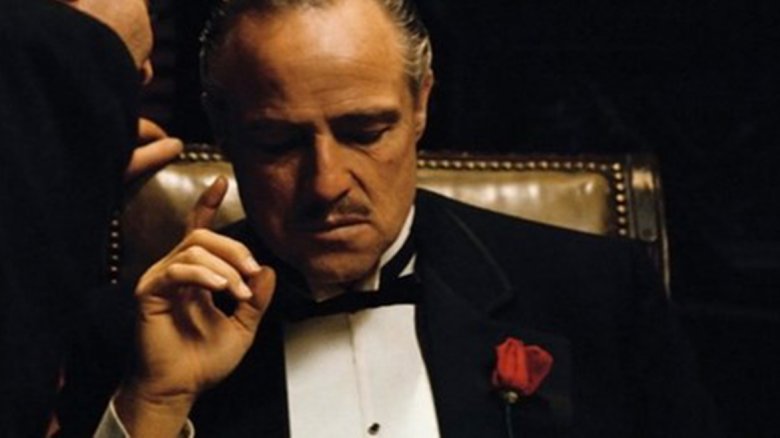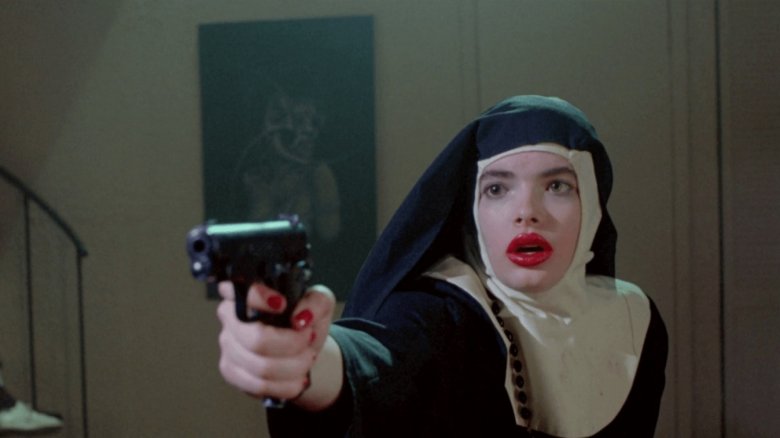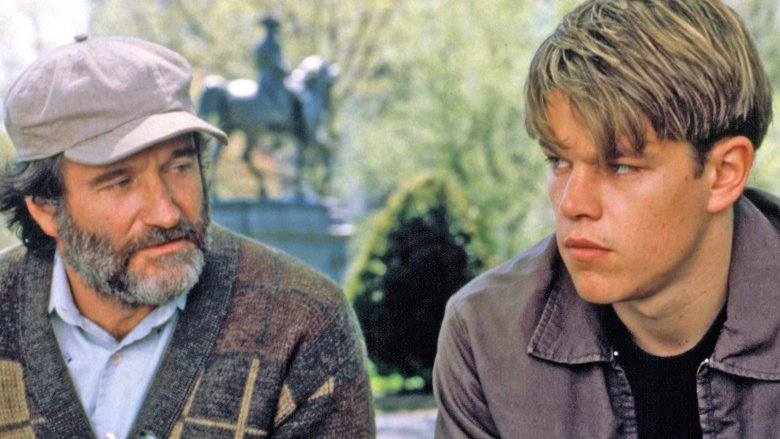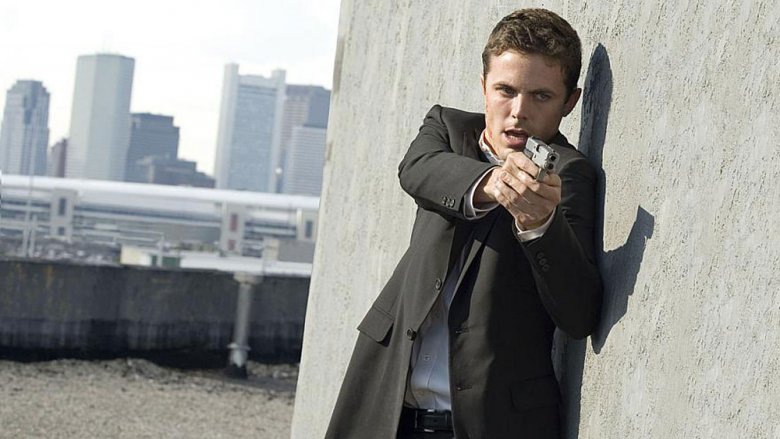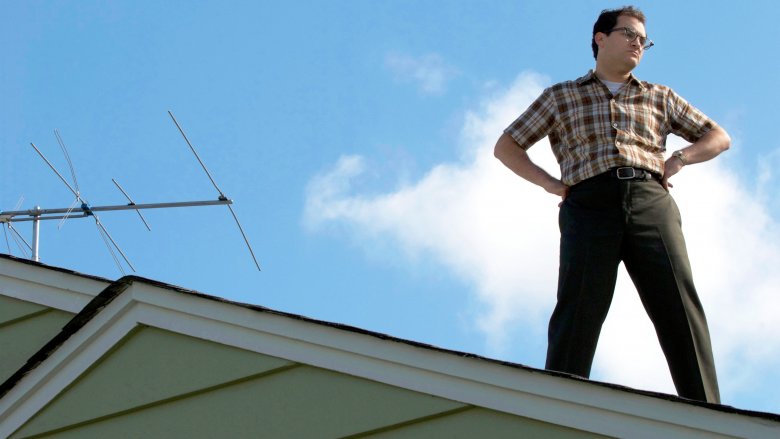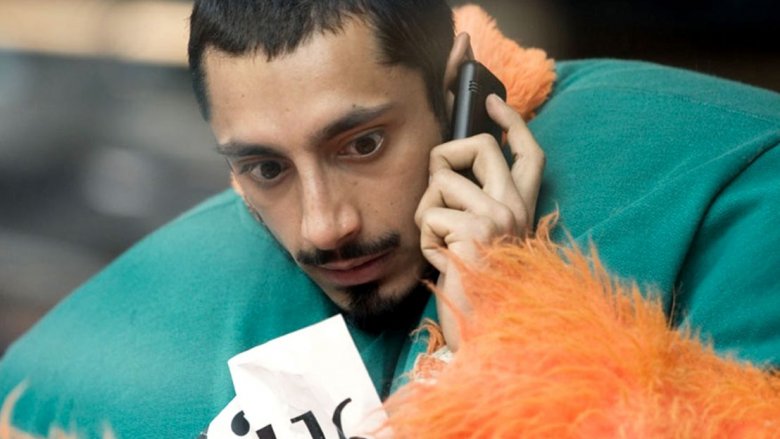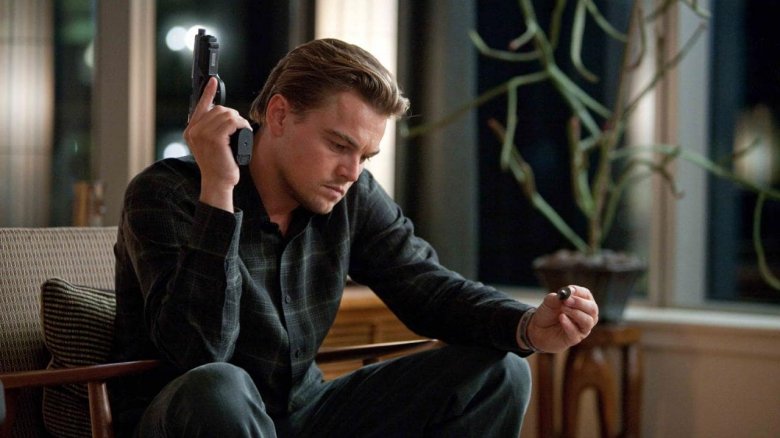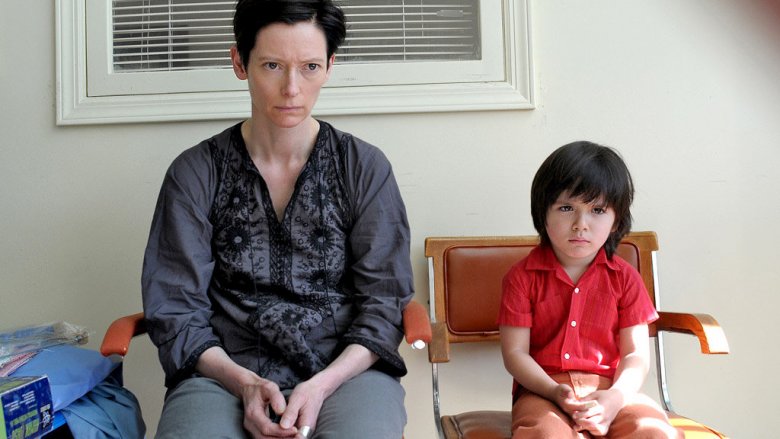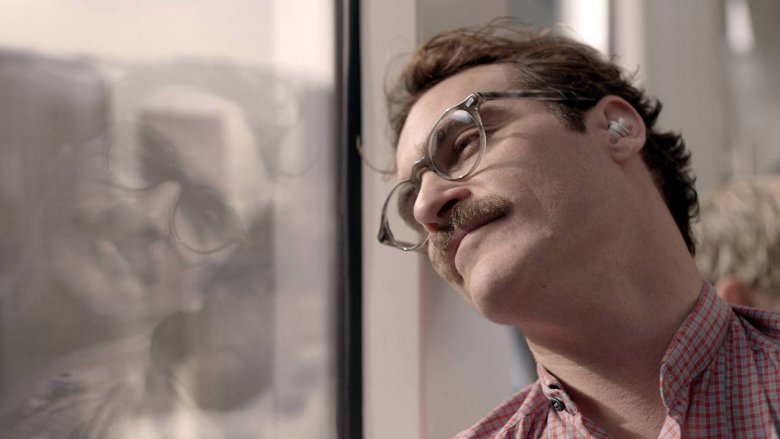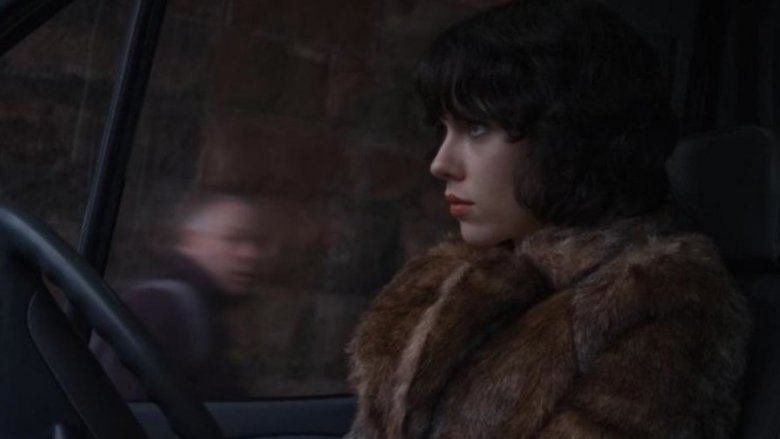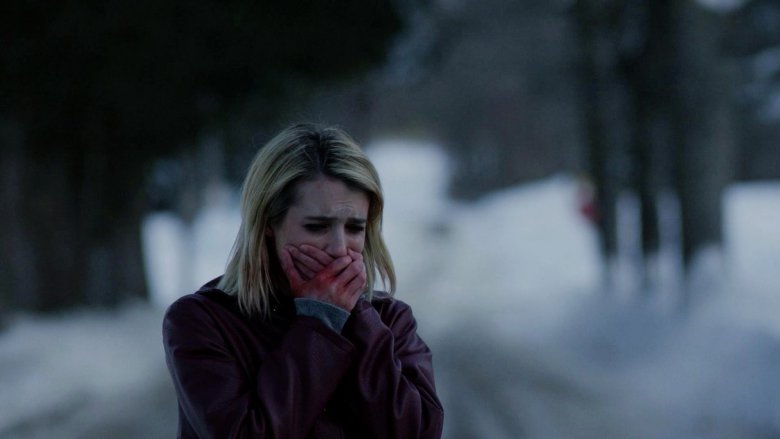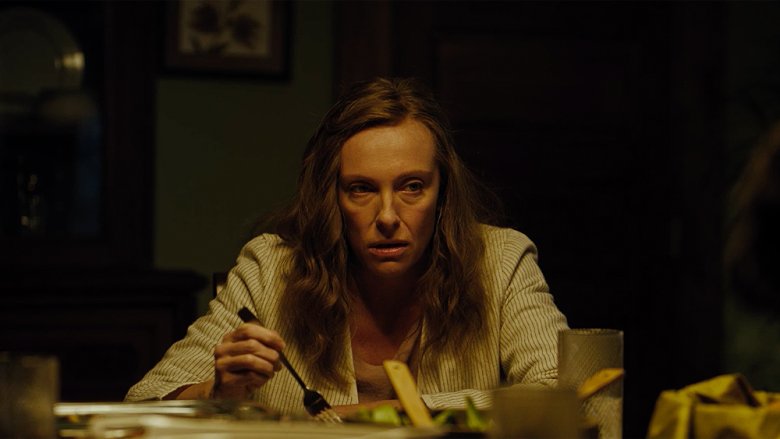Movies You Need To See Before You Die
Some films are a must-see because of the part they play in the cultural conversation. Watching unlocks a world of references, pub trivia answers, metaphors, and dinner party icebreakers—it puts you in the know. But other films are required viewing because of what they can teach us about love, hope, despair, faith, family, and even—warm and fuzzy alert—ourselves.
Before Sunrise
Regardless of your own romantic track record, it behooves you to catch Richard Linklater's 1995 romantic drama Before Sunrise before you kick the bucket. It's perhaps the most accurate depiction of two young people falling in love in cinema history, and since it takes place in as close to real-time as most people would be willing to bear, it affords you the privilege of being swept-up into the ardor—in gobsmackingly beautiful Vienna, Austria, no less—like you're a fly on the wall of a room two impossibly charming people have built out of pure conversation, on the fly, on the first day of a decades-long relationship.
Sure, Ethan Hawke's premature beard makes him look a bit like a Gen X d'Artagnan, and the incessant, over-caffeinated grad school chattiness won't ring true to all ... but at its heart, it's a transcendently beautiful and timeless film about getting to know, and love, another person—those pesky, parasitic butterflies in your stomach, transubstantiated into celluloid.
Irreversible
Dying before seeing Gaspar Noe's 2002 horror-drama Irreversible would rob you of witnessing two of the most brutal, nigh-unwatchable scenes of violence ever staged. If that sounds like something you're willing to happily part with, know this: the film plays out in reverse, ending hours before the horror begins, so the last half of the film feels like a cinematic sigh of relief, with an ending made even happier having just seen the brutality that preceded it. The characters may be oblivious as to what's ahead, but the audience knows full well and are left with a newfound appreciation of the fragility of human life.
It's like that old toast: "To the days that follow this one, which are still perfect." The hours before the unspeakable awfulness of Irreversible are still perfect—too perfect, perhaps; note the Astroturf-like grass in the park—and linger, to the viewer, as vividly as the violence. The film certainly isn't for the squeamish, but those willing to let in the dark are rewarded with an embarrassment of light.
Dear Zachary
You owe it to yourself to see Kurt Kuenne's 2008 documentary Dear Zachary at least once, if only to admit into your life's evidence a platonic, cinematic love letter as large-hearted and pure as any corndog sonnet. What makes the film a minor miracle is that it is also, somehow, one of the rawest, most heart-wrenching depictions of what it means to be a family ever committed to film.
Pro tip: to optimize your Dear Zachary experience, don't watch the trailer above, or read a synopsis online. Just track it down and click play. One small caveat: unless you recently had your heart replaced with a turnip, you will likely find yourself blubbering like a baby about a half-dozen times, so this isn't the best, say, first-date movie. Watch it with someone you love, sure, but also watch it with someone who's already seen you ugly cry.
Dogtooth
Parents and parents-to-be, especially, should watch Yorgos Lanthimos's 2009 drama/comedy Dogtooth before shuffling, broke and exhausted, off their little slice of mortal coil that will forever smell of upchucked milk. Its coal-dark satire brings to light the insane pressure parents are under to mold their children into decent people—and the horrific consequences if they choose, instead, to warp them into something counter to the mores that enable them to leave the house and keep the cycle of life whirring on.
To say much more about the plot would ruin it for the uninitiated, but it involves Rocky IV, (offscreen) decapitation, incest, headbands-as-contraband, fake blood, and a VCR wielded as a weapon. It's not exactly the ideal post-turkey Thanksgiving Day flick to pick, no, but watching it in your old bedroom after everyone else has nodded off will make you awfully thankful your parents didn't resemble the nameless duo in Dogtooth.
O.J.: Made in America
Dedicating almost eight hours of your life to a 2016 documentary film/series that's ostensibly about the O.J. Simpson trial may sound like a lot to ask, especially to those who already spent tenfold those many hours in 1995, glued to CNN, following the case. But to say that Ezra Edelman's O.J.: Made in America is "about O.J." is like saying 13th is "about amendments": it's about celebrity, misogyny, Los Angeles, identity, justice, race—particularly the pernicious idea of transcending race—and, yes, the American Dream, including why that dream is off-limits to large swaths of the population. It's essential.
When it gets its hooks into you—perhaps when O.J. feigns outrage at a fake paparazzo to later sell the scene to the tabloids?—you find yourself longing for this kind of insanely in-depth examination of more topics. Anything less than its 467-minute run-time—that's almost as long as four screenings of Star Wars, by the way—feels anemic or undercooked.
Groundhog Day
Harold Ramis's 1993 comedy fantasy Groundhog Day is mandatory viewing not only because it's widely considered a comedy masterpiece but also because it's been adopted, and rightfully so, as a sort of Zen guide to self-improvement. If the "z" word scares you off, call it what you will, but it's hard to refute the film's core messages: you (yes, you) have boundless potential inside you, life is short, carpe diem, blood sausage is disgusting, and Chris Elliott is an underrated comic actor.
That Phil Connors's spiritual makeover is thoroughly non-denominational makes the film, and its message, better and all the more universal. His changes come from within and are ultimately motivated by a desire not to escape his timey-wimey prison but to instead improve himself and improve the lives of those around him. Plus, Bill Murray gets to have it both ways, playing a scumbag and a saint and also chewing the scenery with a live groundhog on his lap—a groundhog he murders at least once. The path to enlightenment is different for everybody, y'know?
Election
Alexander Payne's 1999 comedy Election is an almost perfect film about high school, politics, class, and infidelity. But it's a must-watch because of how adroitly it handles a particularly white, male, and Midwestern kind of sadness, while also contrasting that corn-fed ennui masterfully with the romantic travails of Tammy Metzler, one of the best, most realistic and relatable LGBTQ characters in recent memory.
That's not to say that the men in this film deserve our sympathies. Dave Novotny is a sexual predator, having seduced the underage Tracy Flick. Jim McAllister ruins his marriage by arranging a tryst with Dave's ex-wife, Linda, and tries to thwart Flick's chances to become class president. Dopey high school superstar Paul Metzler, also running for the office, is so oblivious that he doesn't even realize he stole his sister Tammy's crush from her. They're all pretty awful.
But the film is unflinching in its portrayal of these awful dudes and doesn't make excuses for them. They're moorless and pathetic in a refreshing way, much like how Tammy is so grounded and sympathetic, if ultimately vengeful and petty. This is high school, after all.
Going Clear: Scientology and the Prison of Belief
If you've been woke about the Church of Scientology since before South Park was on the case, Alex Gibney's Going Clear isn't necessarily going to teach you anything new. But for the rest of us, it's a revelation, with dozens of absolutely bonkers allegations and stories brought to light. Did you know that L. Ron Hubbard has written more books than anyone, ever? Or that if you practice it—and pay for it—long enough, you "can handle things and exist without physical support or assistance," like you're Scarlet Witch?
Ultimately, Going Clear is more than just a takedown of the Church of Scientology. It's about blind faith, manipulation, and the willingness of crowds to follow charismatic leaders, despite mountains of evidence suggesting they do the contrary.
Citizen Kane
Yeah, yeah, you're tired of people telling you to watch 1941's Citizen Kane. But there are dozens of reasons it's held in such high esteem, and no one better elucidated those reasons than Roger Ebert, whose commentary track on the Kane DVD/Blu-ray Special Edition set is a film class unto itself. As Ebert points out, Kane pioneered or popularized techniques we're all familiar with today, including, most notably, the use of deep focus (the entire shot in focus) and putting ceilings in shots, even if it meant drilling into the floor to sink those old giant cameras down far enough to pull it off.
But Kane's technical achievements alone don't make it must-watch: it's also a dazzlingly well-told, thoroughly American story—that was also highly critical of the so-called American Dream. That every scene is also exploding with innovation helps to secure its legacy, sure, but it's not one of the most beloved films in cinema history because director/star Orson Welles insisted on cutting the furniture in half, for example, to get a cool, shockingly modern shot. The story—about a rich businessman who longs for power, so he embarks on an ultimately scandal-ridden political career, despite having zero experience in politics—has aged particularly well. That, combined with the still-impressive visuals, makes for a timeless, must-watch classic.
Zodiac (2007)
It's human nature to solve complicated puzzles and crack unsolved mysteries. But sometimes there are questions that just can't be answered — like who murdered five people in northern California during the late '60s and early '70s. He called himself the Zodiac, and nobody ever discovered his true identity, although that wasn't for lack of trying.
The case inspired quite a few sleuths — both professional and amateur — to try their hand at the infamous murder mystery, but they all walked away defeated. Well, most walked away. A few would never give up until they looked the killer right in the eyes. That's where David Fincher's Zodiac comes in. It's a treatise on obsession, on what happens to a person when curiosity keeps gnawing away at his mind. As you can guess, the results aren't pretty.
The movie follows a trio of heroes — a detective (Mark Ruffalo), a reporter (Robert Downey Jr.), and a cartoonist (Jake Gyllenhaal) — chasing down the hooded serial killer. And yeah, we all know they're going to fail, but Zodiac isn't about finding the truth. It's about the never-ending search and how that quest can change from dedication to obsession. That's especially true for Gyllenhaal's character, Robert Graysmith, a man who loses himself in the case because he just can't live with uncertainty.
Granted, if you're looking for a gorefest, you might want to pass on this film. This is a story about chasing after shadows and accepting the fact that you might never know all the answers.
Looper (2012)
Time travel is a common trope in science fiction. It's used so often that it can occasionally feel stale, and that's why Looper is a treat for any film fan. Written and directed by Rian Johnson, Looper uses the genre's time-bending conventions to focus on how violence only begets violence and how our actions can wreak havoc across generations.
In this universe, gangsters from 2074 send their victims back to 2044, where they're murdered and disposed of by hit men like Young Joe (Joseph Gordon-Levitt). It's a lucrative job, but as part of the deal, Joe will eventually have to shoot his older self to "close his loop." Only Old Joe (Bruce Willis) isn't going to sit around and let his younger self commit suicide. When he travels back in time, the old man takes off running, kicking off a film about a guy literally trying to find himself.
However, the movie really gets interesting when we discover Old Joe voluntarily came back in time. In 2074, a notorious crime lord called the Rainmaker murdered his wife. So Old Joe wants to kill the Rainmaker as a kid before he can become an all-powerful mob boss. As a result, Young Joe is sucked into the twisty revenge plot, and he's given an opportunity to take a stand and put an end to the circle of bloodshed. In a medium that often glorifies brute force, Looper goes the same route as a film like Blue Ruin by showing that violence — even when done for understandable reasons — doesn't solve problems...it just makes them worse.
Cloud Atlas (2012)
Based on the novel by David Mitchell, Cloud Atlas is a big, messy, sprawling movie with a reach that exceeds its grasp. But while the movie is far from perfect, you've got to give it major points for ambition. This film with big ideas spans across millennia, from the 19th century to the post-apocalypse.
Featuring an incredible cast (Tom Hanks, Halle Berry, Hugo Weaving, Susan Sarandon, and Jim Broadbent, just to name a few), the film follows a small group of people as they live, die, and repeat their lives throughout history. The same actors appear in each new chapter, playing reincarnated souls of varying genders and races. But while faces change and the scenery transforms, every segment tackles the same theme in a brand new way.
Cloud Atlas is a movie about oppression — how, throughout time, the mighty have always tried to impose their will on the weak. The "good old days" don't really exist, as history is full of slavery, murderers, and corrupt corporations, not to mention power-hungry nurses and cannibal warlords. But while the powerful will continue to exercise a philosophy of "the weak are meat, and the strong do eat," there will always be a few good men and women who try to resist, no matter the time or place.
Snowpiercer (2014)
If you're looking for realism, then Snowpiercer probably isn't the movie for you. Instead, Bong Joon-ho's first English-language film works more like a fairy tale, one full of brilliant visuals, masterful action scenes, and a radical message about the nature of society.
The story is set in a post-apocalyptic future where the world has been turned into a giant ice cube. The few survivors have taken shelter on a massive train run by a mysterious engineer (Ed Harris), but life aboard this locomotive can be pretty rough for those stuck in the tail end. These unlucky passengers are treated like slaves by the well-to-do folks in the front, so eventually a group of rebels led by Curtis (Chris Evans) decide it's time for an uprising.
As they fight their way up the train — and through some of the most wonderful sets in recent sci-fi memory — Curtis comes face-to-face with a harsh realization. Without getting too far into spoilers, Snowpiercer isn't just a critique of the class system. It's an examination of the very idea of "revolution." Look at history, and you'll see that in most cases, idealistic rebels turn into the dictators they want to overthrow. According to Snowpiercer, that's because the system itself is beyond saving.
That's a pretty deep message for a movie involving ax battles and psychopathic kindergarten teachers. You might disagree with Snowpiercer's interpretation of politics, but at the very least it provides some interesting food for thought. And if for no other reason, you should check out the film for Tilda Swinton's hilarious-yet-horrifying performance as the world's most maniacal politician.
Whiplash (2014)
If we know one thing for sure about Damien Chazelle, it's that the man loves himself some jazz music. For proof, look no further than Whiplash, the director's breakout film. The movie stars Miles Teller as an ambitious young drummer named Andrew Neiman, a guy desperately hoping to join a prestigious band at the music conservatory he attends as a student. But if he wants to make the cut, first he has to impress Terence Fletcher, a snarling, swearing, cymbal-throwing conductor played by J.K. Simmons. This is not a man who's easily impressed.
Driven by his need for perfection, Neiman dedicates every waking hour to becoming the world's best jazz drummer, practicing so hard that his fingers bleed. Meanwhile, he burns every bridge and ruins every relationship in his life, all to achieve his goal of greatness. But here's the interesting thing about Whiplash. This isn't a movie where the main character eventually learns the error of his ways. Neiman only grows more and more obsessed with impressing Fletcher and becoming the next Buddy Rich. By the end of the film, it looks like he might achieve his dream at the cost of everything else in his life.
Sure, he's become a horrible person, but he's going to get his face on the Mt. Rushmore of jazz music. That's why Whiplash is such a fascinating film. It's all about the price of success — similar to Chazelle's La La Land — and it suggests that while you might become the greatest drummer who's ever lived, you'll probably have more fans than friends.
Ex Machina (2015)
From Metropolis to Her, science fiction movies have always been interested in examining man's relationship with technology, often reflecting the worries and concerns of their time. After all, technology's constantly evolving, constantly creating new benefits and new drawbacks, and nowhere is that more evident than in Alex Garland's Ex Machina.
The story centers on a young programmer named Caleb (Domhnall Gleeson) who wins the chance to spend a few days working with Nathan (Oscar Isaac), a wealthy super genius who created a popular online search engine. When Caleb shows up at Nathan's secluded cabin, he quickly becomes a part of a complicated Turing test, tasked with interviewing a beautiful robot named Ava (Alicia Vikander). Caleb soon develops a crush on the imprisoned Ava, while Nathan clearly enjoys his status as a creator god. As for Ava, she just wants to be free.
This brilliant film grapples with the ethical and moral questions about how humans should treat artificial intelligence, and it also deals with relevant themes like the issue of surveillance. But there's something else going on in Ex Machina, as the film is a deeply disturbing study about the different ways men objectify and abuse women. It's pretty obvious that Nathan is a bad guy here — he's locked up a female AI — but by the end of this masterful movie, you might also start questioning Caleb as well. And the gut-punch of an ending will leave you thinking about Ex Machina for quite some time.
The Invitation (2016)
There are a lot of great movies out there about grief like Ordinary People and Manchester by the Sea. But the scariest might be Karyn Kusama's The Invitation. This is the ultimate dinner party-gone-wrong movie, one that'll have you sitting on the edge of your seat the entire time, screaming at the characters to get out of the house. Unfortunately, they won't listen — because they're far too polite.
The Invitation follows a guy named Will (Logan Marshall-Green), who's experienced a terrible tragedy that ruined his marriage. Now, he's received an invitation from his ex-wife Eden (Tammy Blanchard) for a get-together at her Hollywood Hills home. All the old gang's going to be there, and Will reluctantly agrees to attend. But when he arrives, he feels something is terribly wrong — probably because Eden won't stop talking about the weird cult she's just joined.
Or perhaps everything feels off because Will is still trying to cope with that tragedy from his past, an event that occurred in this very house. As his emotions come boiling to the top, Will must grapple with old wounds that never healed, while trying to convince the other guests — all too polite to question their hosts' odd behavior — that something weird is happening. Honestly, it's a nail-biter of a film that deals with pain, loss, and the power of social norms. Plus, it ends with one of the creepiest final shots in thriller history.
Frailty (2001)
Cinema is full of psycho fundamentalists. There's Harry Powers in The Night of the Hunter, Margaret White in Carrie, and Mrs. Carmody from The Mist. But none are quite so terrifying as Dad Meiks from Frailty, played by Bill Paxton. The late actor also directed this creepy little gem, and what sets Frailty apart from other movies about religious nutjobs is that Paxton does a fantastic job of showing how fundamentalists see the world, how they justify their deeds, and how they pass their twisted ideologies onto their kids.
Unlike most of Hollywood's kill-crazy churchgoers, Paxton's Dad is a caring father who genuinely loves his kids. Unfortunately for his pre-teen boys, Fenton (Matthew O'Leary) and Adam (Jeremy Sumpter), their father believes God wants him to pick up an ax and "destroy" demons disguised as humans. Dad Meiks encourages his boys to follow God's command and wage war against the devil, but while 9-year-old Adam believes his father's every word, 12-year-old Fenton thinks his dad has lost his mind.
Concerned for his son's soul, Dad Meiks begins to physically abuse Fenton, all while brainwashing Adam into following in his own bloody footsteps. Even though he's playing a serial killer, Paxton never devolves into a raging lunatic. His character truly believes he's doing the Lord's work, making the world a better place, and training his children in the way they should go. It's a chilling performance from Paxton, and it's a frightening film that, as Stephen Holden of The New York Times put it, "forcefully reminds us of the degree to which all of us are our parents' ideological captives when we're children."
Midnight in Paris (2011)
Written and directed by Woody Allen, Midnight in Paris finds Owen Wilson playing Gil Pender, an Allen stand-in who earns his paycheck writing screenplays. But despite his Hollywood success, Gil dreams of writing a great novel, something that might stand alongside the works of Ernest Hemingway and F. Scott Fitzgerald. In fact, he wishes that he lived back in the 1920s, so he could sit on the Seine drinking coffee and talking philosophy with the legendary members of the Lost Generation.
Then, during a trip to Paris, Gil's wish magically comes true. Stumbling through some sort of time portal, our hero finds himself back in the Jazz Age, where he actually gets to meet his literary idols. There's Hemingway (Corey Stoll), F. Scott and his wife Zelda (Tom Hiddleston and Alison Pill), not to mention Gertrude Stein (Kathy Bates) and Salvador Dali (Adrien Brody). But most importantly, he runs into Adriana (Marion Cotillard), a beautiful muse who immediately hits it off with the time-traveling screenwriter.
Midnight in Paris is a fantastical love letter to the past, but even though the film basks in the warm glow of memory, Woody Allen is totally aware that nostalgia is a tricky thing. As Gil soon learns, obsessing over the past is a guaranteed way to feel miserable in the present. No matter when you're from, life is always going to feel a little unfulfilling; stepping back in time is never going to help. As Glenn Whipp of the L.A. Times put it, "You'll never be satisfied with the here and now until you stop living in the past."
Take Shelter (2011)
Who's the greatest actor working today? Daniel Day-Lewis? Tom Hardy? Michael Fassbender? While those are all great answers, the award might go to Michael Shannon. Possibly the most intense human being on the planet, Shannon is the king of on-screen weirdos, erratic men on the verge of losing their minds. And in Take Shelter, he's at the top of his game, playing a paranoid father who fears the world is coming to an end — that or he's suffering from schizophrenia. Either way, the fate of his family is on the line.
Shannon stars as Curtis LaForche, a man suffering from the world's worst nightmares. At first, Curtis worries he's going crazy, but the thing is, these dreams feel a lot more like prophecies than fantasies. There's poisonous rain and vicious dogs, monstrous clouds and swarms of evil birds. But instead of telling his wife Samantha (Jessica Chastain) about the troubling thoughts swirling in his mind, he decides to build a storm shelter, just in case his visions come true and his family needs somewhere to wait out the apocalypse.
Jeff Nichols' sophomore film does all sorts of impressive thematic things at once. You can read the film as being about a man suffering from mental illness, or as Steven Rea of The Philadelphia Inquirer points out, you can see it as a tale about a middle-class American suffering from "a crisis of confidence in government, uncertainty about the economy, joblessness, foreclosures, mounting poverty, a sense that things are turning bad." Either way, Take Shelter examines what happens when paranoia sets in and how anxiety and dread can tear your life apart.
The Act of Killing (2013)
Can you imagine a world where the Nazis won World War II? Unfortunately, you don't have to. Instead, all you need to do is visit Indonesia. In the 1960s, death squads roamed the country, slaughtering an estimated 1.2 million people accused of being communists. These gangsters were never brought to justice. Instead, they became powerful figures in Indonesian society, bragging about their evil deeds and answering to no one ... until Joshua Oppenheimer showed up.
A filmmaker from Texas, Oppenheimer had a truly wild idea. He wanted these gangsters to tell their side of the story, but he didn't want to make your run-of-the-mill "talking heads" documentary. Instead, he had these mass murderers make their own movie, a recreation of their crimes involving dancing girls, film noir mobsters, and even a drag queen. All the while, Oppenheimer was creating a film of his own, a full-length behind-the-scenes featurette if you will, resulting in the most disturbing documentary ever made.
The Act of Killing digs deep into the nature of evil, focusing on the monsters who perpetrate mass genocide and how they justify their bloody behavior. The film is also a study in the nature of performance, of putting on an act for yourself and others. Thanks to their nightmare movie, we get to see how the killers view themselves. Plus, when one of the murderers — the smooth and smiling Anwar Congo — begins showing signs of guilt, we're forced to ask if he's being sincere or just playing for the camera. A gut-punch of a movie, The Act of Killing is equaled in intensity only by its sequel, The Look of Silence. Watch them back-to-back for the most devastating double feature of all-time.
The Babadook (2014)
Being a parent — especially a single mom — is incredibly hard, something Amelia (Essie Davis) knows only too well. She was left a widow when her husband died in a car wreck, and now she's alone with her 7-year-old son, Samuel (Noah Wiseman). Amelia and Samuel's relationship is complicated; he's basically a devil child. Samuel hurts other kids, gets kicked out of school, and builds all sorts of weapons. He screams, cries, and (metaphorically) suffocates his mom. She loves the boy, but she kinda hates him, too.
It probably doesn't help that her husband died rushing a pregnant Amelia to the hospital.
Just when Amelia reaches the edge of her sanity, a grisly pop-up book shows up at her house. This isn't your normal bedtime story, though. Instead, it's a "children's tale" about Mr. Babadook, a murderous demon with some very bad plans for Amelia and her boy. Soon, our hero sees the spirit lurking in the shadows, and as the monster gets closer and closer, Amelia's relationship with Samuel takes an even darker turn. It seems that Mr. Babadook wants the boy, and Amelia is torn between defending her son and giving in to the creature's demands.
Written and directed by Jennifer Kent, this Australian film works perfectly as a first-rate fright flick. In fact, William Friedkin of The Exorcist said it was the scariest movie he'd ever seen. But really, The Babadook feels more like a compassionate version of The Shining. The movie works on multiple levels, examining both the depths of depression and the pain and suffering of being a parent. It's a story about battling your demons and keeping them at bay, even if you know full well that you'll never truly defeat them.
Jodorowsky's Dune (2014)
If you've never seen a film by Alejandro Jodorowsky, well, you don't know what you're missing, and honestly, they're kind of hard to explain. This Chilean director gave the world titles like El Topo and The Holy Mountain, midnight movies injected with a mind-bending blend of sex, spirituality, and lots and lots of acid. Love or hate his avant-garde approach, you've got to admit the man has vision, one that won't bend to commercial markets or compromise itself for test audiences.
And that brings us to Dune, often described as the greatest movie never made. In the 1970s, Jodorowsky desperately wanted to bring Frank Herbert's classic novel to life in his own hallucinatory way, so he assembled a group of "spiritual warriors," a dream team including the likes of Pink Floyd, Mick Jagger, H.R. Giger, and Salvador Dali. With the help of these creative geniuses, Jodorowsky planned on crafting a movie that would make people feel like they were taking LSD, that would spark a spiritual revolution.
Needless to say, Jodorowsky's reach exceeded his grasp, and his dreams of Dune eventually crumbled into nothing. But while we never got a chance to watch the madman's magnum opus, we do have the next best thing: Jodorowsky's Dune. Using concept art and interviews with Jodorowsky himself, this brilliant documentary chronicles the failed film. It shows how Jodorowsky courted demanding stars like Orson Welles, created a world never before seen in sci-fi, and how his failure inspired movies like Alien and Star Wars. In short, Jodorowsky's Dune is a paean to the power of imagination and the need to dream big.
Colossal (2017)
Playing like a bizarre mash-up of Godzilla and The Lost Weekend, Colossal follows an alcoholic, unemployed woman named Gloria (Anne Hathaway) who's just been kicked out of her apartment. With nowhere else to go, Gloria returns to her hometown, gets a job working for her childhood friend Oscar (Jason Sudeikis), and then learns she's psychically connected to a giant monster that's attacking South Korea.
Yeah, it's a pretty weird movie.
Gloria quickly discovers this skyscraper-sized kaiju materializes over Seoul whenever she walks into a particular playground at a particular time of day. Stranger still, the monster mimics her every move. At first, a drunken Gloria thinks it's a neat trick, but after realizing her superpower is hurting people, she decides to get sober and clean up her life. That's when Colossal takes a hard left turn, morphing into a completely different movie. There's blackmail, fragile masculine egos, and emotional manipulation.
With a brilliant script from writer-director Nacho Vigalondo, Colossal is a brilliant study — and epic takedown — of toxic masculinity in the 21st century. The turn comes as a complete shock unless you're a woman who's completely used to these sorts of dudes.
Get Out (2017)
Warning: the less you know about Get Out, the better. If you want to keep completely spoiler-free, just know that writer-director Jordan Peele has crafted one of the greatest horror movies of the 2010s, one that surpassed all box office expectations and impressed nearly every critic on Earth. You should also know that Get Out is a movie about racism, but not the kind that involves rednecks, nooses, or burning crosses. Instead, Get Out deals with a kind of prejudice that's far subtler, that hides behind woke sentiments and white smiles.
Chris Washington (Daniel Kaluuya) is a black photographer dating a white woman (Allison Williams). She wants Chris to meet her parents (Bradley Whitford and Catherine Keener), but Chris isn't sure that's a good idea. He knows a thing or two about being a black guy in a white world. Nevertheless, Chris gives in and drives out to meet Mom and Dad at their secluded estate, and they certainly seem friendly, if a little too friendly. The dad gushes over Barack Obama, and her brother (Caleb Landry Jones) thinks Chris has the perfect beastly build to become an MMA fighter. With all these cringey compliments, we get the sense maybe these white liberals aren't quite as PC as they seem, and maybe that's true about more Americans than we think.
We won't give away any more of the plot, but rest assured, things get really scary really fast. The movie plays out like those horrific conspiracy classics from the '60s and '70s, like Rosemary's Baby or The Stepford Wives. With its ever-growing sense of dread, Peele's debut film is a brilliant satire of race relations in the U.S., while also featuring one of cinema's creepiest party scenes and a climax that ends with a gory explosion of anger and deer antlers.
The Godfather (1972)
Directed by Francis Ford Coppola, The Godfather is a movie that transcends the gangster genre. Not only was this a pre-blockbuster blockbuster, but it transformed the way moviegoers thought about the Mafia. It turned machine gun-wielding monsters into flawed yet sympathetic humans, bound by tradition, family, and honor.
The film also permeated pop culture with its iconic lines — "Leave the gun, take the cannoli," "I'm going to make him an offer he can't refuse" — and Marlon Brando's performance as Vito Corleone secured the actor's spot in the pantheon of Hollywood legends. There are scenes from the film that are still seared into the collective consciousness of all moviegoers, like the horse head in the bed and the operatic baptism massacre.
And after The Godfather came to power, it set the standard for all Mafia movies to come. With its memorable score (courtesy of Nino Rota), beautifully dark cinematography (via Gordon Willis), and all-time performances from the likes of Al Pacino and James Caan, The Godfather's greatness just can't be refused.
Ms. 45 (1981)
Rape-and-revenge films aren't generally must-watch viewing, but Ms. 45 is a brutal rebuke to your typical exploitation flicks. Directed by Abel Ferrara, this thriller finds Zoë Lund playing Thana, a mute seamstress trying to survive the filthy streets of 1980s New York. This Big Apple is a dangerous place for women, and in just one day, Thana is violently raped by two different men on two separate occasions. But instead of going to the cops, Thana gets a gun and becomes an angel of vengeance, patrolling the streets and blasting pimps, thugs, and sleazebags who catcall when she walks by.
See, she's not hunting the guys who hurt her. She wants justice for women everywhere, and that means shooting any dude who crosses the line. Her body count gets higher and higher, until this lipstick-wearing serial killer decides it's time for one final bloodbath. Equal parts vigilante flick and horror film, Ms. 45 is goofty, gritty, and grotesque. And while it's got all the trappings of an exploitation flick, it's really a big middle finger to the entire genre. This isn't about leering at women as they're violently assaulted. It's about Dirty Harry in a dress, finally striking back at a city full of creeps.
Good Will Hunting (1997)
Once upon a time, before Jason Bourne or Justice League, Matt Damon and Ben Affleck were two kids from Boston trying to make it big, and the duo finally found stardom with Good Will Hunting. The two won an Oscar for their screenplay, and over 20 years later the film is still considered one of the best of either of their careers.
Directed by Gus Van Sant, this 1997 movie tells the story of Will Hunting (Damon), a janitor/genius with some serious psychological baggage. At the prompting of a professor, this foul-mouthed math whiz winds up in the office of Dr. Sean Maguire (Robin Williams), the only psychologist who can break through Will's barbs and barriers. Williams won an Academy Award for this performance, one that's equally sad and compassionate, and his monologues — from the park bench speech to his (improvised) recollections of his wife's imperfections — are both hilarious and heartbreaking.
Of course, Williams isn't the only one with incredible acting chops on display. Affleck moves audiences to tears with his tender speech about the best part of his day, and watching Damon's cocky swagger crumble away is the true acting talent is made of. With writing and performances this good, it's easy to see why everybody likes these apples.
Gone Baby Gone (2007)
After a series of acting disasters, Ben Affleck finally got his second wind when he stepped behind the camera for Gone Baby Gone. Based on the novel by Dennis Lehane, this 2007 drama finds Casey Affleck and Michelle Monaghan as Patrick Kenzie and Angie Gennaro, romantic partners and private investigators hired to find a missing girl. As they dig deeper into the case, they discover a painful secret, and Patrick is forced to make one of the trickiest decisions a movie detective has ever had to make.
Shot in Boston, the movie is inseparable from the city, and the location adds so much depth and desperation to the story unfolding onscreen. The film also features one of Casey Affleck's best performances as the conflicted investigator. But at the heart of this film, Gone Baby Gone is about how our decisions can save a life or tear everything down, and it also grapples with that tricky line between what's right and what's wrong. Ultimately, it's a film about guilt, as Patrick weighs whether he made the right choice, making this one of the most thoughtful mysteries ever made.
A Serious Man (2009)
After their Oscar-winning success with No Country for Old Men, the Coen brothers got theological with A Serious Man. Borrowing from the Bible's book of Job, this 2009 parable tells the story of Larry Gopnik (Michael Stuhlbarg), a Jewish professor who can't catch a break. His wife is cheating on him, his student is blackmailing him, his brother is in trouble with the law, and somebody is trying to destroy his career. With everything falling apart, Larry seeks the help of three rabbis, only their advice isn't exactly helpful.
Larry searches and searches for meaning and never finds any answers, even when he looks at the parking lot. But while Hashem might be holding back, A Serious Man has a pretty simple message: Larry isn't going to find any answers. Nobody is. This cynical film (which pairs incredibly well with Burn After Reading) is the Coens at their most tragic. Their universe is one where you can't escape fate, and no matter how hard you try to be a serious man, bad stuff will always happen, without reason. It's not a message found in many Hollywood films, and instead of an upbeat ending, we got something scary looming on the horizon. So what are the Coens trying to say with that ominous ending? Please. Just accept the mystery.
Four Lions (2010)
Directed by Chris Morris, Four Lions is one of the smartest and most shocking comedies to ever hit the silver screen. This British flick focuses on a group of London-based jihadists led by the oddly likable Omar (Riz Ahmed), but unfortunately for this sweet suicide bomber, he's the only semi-intelligent one in his group. His crew is made up of psychos and oddballs, and dealing with them is no easy to task, especially since they think the best ways to bring down Western civilization include strapping bombs onto birds, attacking peaceful mosques, or blowing up the internet.
Yeah, it's both a silly and surprising premise, and it works so well because Four Lions expertly balances an incredibly sensitive subject. On one hand, the film mercilessly mocks these would-be bombers as they try to outsmart the English authorities in the most idiotic ways possible. On the other hand, it shows that no matter how stupid you are to strap on a suicide vest, the consequences are still very real. The film also does an incredible job of getting audiences to sympathize with Omar. He's a friendly guy who loves his family ... but he also wants to kill a whole bunch of people. The whole movie walks that fine line between comedy and tragedy, farce and fear, until the ending comes, and we're not laughing anymore.
Inception (2010)
Christopher Nolan's filmography is full of modern-day classics, from Memento to The Dark Knight to Dunkirk, and while these films are all fantastic, none are quite so intricate or impressive as Inception. This 2010 sci-fi flick follows a thief played by Leonardo DiCaprio who specializes in sneaking into people's dreams and stealing their thoughts. But when he's offered a chance at getting his old life back, the crook and his crew take part in a dangerous mission where they're hired to implant a memory in the mind of a young businessman.
Their trippy con job takes them deep into this man's subconscious, and the gang must maneuver through dreams within dreams within dreams, allowing Nolan to create some truly staggering visuals. An entire city folds over on itself (CGI), men fight in a rotating hallway with ever-shifting gravity (courtesy of practical effects), and it's all accompanied by Hans Zimmer's pounding, driving score, which is one of the best in his brilliant musical career.
The film works on multiple levels — as a film noir, as an exploration of the mind, as a metaphor for filmmaking — and its infamous ending still sparks debate to this day. In an era of often mindless blockbusters, Inception proved that big-budget films aren't just for creating illusions. They're also for giving audiences new ideas.
We Need to Talk about Kevin (2012)
Based on the novel by Lionel Shriver, We Need to Talk About Kevin is a dark and disturbing film with all the trappings of a drama. But deep down in its psychopathic heart, this is a horror film about the terrors of raising a child and what can go wrong when you're a parent.
Directed by Lynne Ramsay, this foreboding film finds Tilda Swinton giving the exasperated and devastated performance of a lifetime as Eva Khatchadourian, a mother with a monster for a son. Played by three different actors (but primarily an eerie Ezra Miller), Kevin seems a little bit off from birth. There's something wrong with this kid's brain, and while he charms the rest of the world, this little sociopath truly hates his mother and wants to make her life miserable.
But whose fault is that exactly? Was Kevin born this way? Or does Eva deserve the blame for being a mother who wasn't exactly thrilled to have a son? When Kevin finally does something truly evil, Eva is forced to look back at her life and question whether her own insecurities and hatred turned Kevin into something awful. It's a chilling examination of nature vs. nurture, an insightful look into the trauma of parenting, and it will definitely make anyone think twice before having kids.
Her (2013)
Even though it's set in the near future, Her is a story that translates for any time period. This Spike Jonze joint tells the story of Theodore Twombly, a divorced letter-writer played by Joaquin Phoenix. After befriending an operating system named Samantha (Scarlett Johansson), Theodore finds himself falling head over heels for the funny, sexy AI ... and Samantha falls in love with him, too.
But romance between a man and a disembodied program brings all sorts of problems, especially when you're as isolated and hurting as Theodore is. Sure, the film examines the place technology holds in the world today, but really, it's about a movie about loneliness and isolation. It's a futuristic tale about ancient emotions: the joys of romance, the pain of a break-up, and the depression that's grown only worse in an era of social media.
On top of those heavy themes, Phoenix is phenomenal as a quiet, struggling writer, looking to become whole again, and even though we never see Johansson, she brings Samantha to life with just her voice, creating a fully developed character who's just as human as any actual person we see onscreen.
Under the Skin (2014)
Under the Skin might lure moviegoers in with a naked Scarlett Johansson, but don't be fooled. This 2014 film is a terrifying nightmare and one of the greatest horror films ever made. Directed by Jonathan Glazer, the sexiness gives way to something completely foreign and alien, which makes sense as Johansson is playing a being from another world. She roams the streets at night — wearing human clothes and human skin — luring unsuspecting men back to an empty house where something unspeakable happens. It's the kind of stuff that goes down in our very worst dreams, only this time it's accompanied by one of the most unsettling scores ever composed for film, courtesy of Mica Levi.
But after seducing so many men to their doom (for reasons we never truly understand), Johansson's alien character begins developing human emotions. She desires to eat and explore and connect with other people, but soon enough, this predator finds herself prey in a world that's cold, cruel, and alien. Johansson gives the performance of a lifetime here, and Glazer creates scenes that are so disturbing — the beach scene, the scenes involving a deformed man, anytime a guy is taken back to Johansson's base — that they far surpass anything seen in a slasher flick. Glazer also employed guerrilla-style filmmaking by filming real men as they unknowingly interacted with Johansson, which gives the whole film a sense of realism and a sense that something is creeping up and getting ready to drag you down into the darkness at any moment.
The Blackcoat's Daughter (2017)
Directed by Oz Perkins (son of Psycho's Anthony Perkins), The Blackcoat's Daughter is a chilling horror flick that will haunt your mind and never leave, no matter how hard you try to drive it out. Set at a boarding school, the film follows two girls — Kat (Kiernan Shipka) and Rose (Lucy Boynton) — who find themselves alone when their parents don't show up to take them home. Rose is completely cool with this situation, but Kat is gripped by fear. She's haunted by visions that something horrible happened to her mom and dad, and she's so terrified of being alone that she'd even consider making a deal with the devil just to have some company. The film also follows a second storyline where a mysterious woman played by Emma Roberts hitches a ride with an elderly couple. How the two stories converge is one of the best payoffs of this icy horror flick, but both plot points are about the absolute crippling fear of being alone. Sure, there are demons and decapitations, exorcisms and evil little kids, but under all those surface-level scares, The Blackcoat's Daughter is so effective because it's about the things that truly make us feel afraid, like being alone.
Hereditary (2018)
Widely hailed as the scariest film of 2018, Hereditary is far more than a freaky flick about cults, seances, and demonic possessions. It's a story about family and fate, two of the scariest concepts in the history of man. Written and directed by Ari Aster, Hereditary tells the story of the Graham family. The matriarch of the Graham clan has recently passed, and her relatives are barely hanging together. It doesn't help that there seems to be a sinister force at work, moving the family around like they're merely dolls in a miniature house for some evil scheme.
It would be a huge disservice to reveal too much about the plot, but we do have to sing the praises of Toni Collette as Annie, a woman who alternates between extreme grief and homicidal rage. As her family life and sanity crumble around her, Annie struggles to save her children while threatening them at the exact same time. And it's her incredible acting abilities that lend so much horror to the terrifying theme of the story — that free will is just an illusion. According to Hereditary, we're all just products of our family, whether that's the home we were raised in or our DNA. Whether you're dealing with mental illness passed through the genes or demons that have haunted your family for decades, everyone can relate to the stomach-churning horror of Hereditary.
